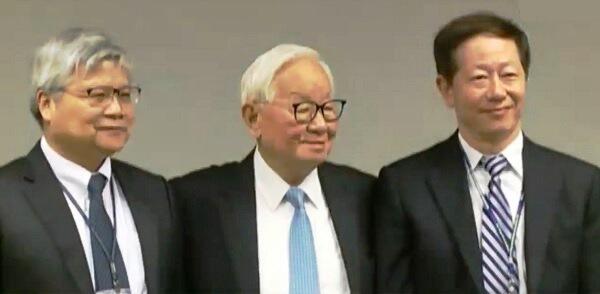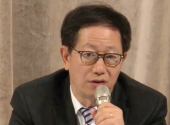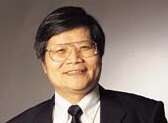Smooth Succession Expected at TSMC
Article By : Alan Patterson, EE Times

Foundry giant likely to see smooth transition to new management once Chairman Morris Chang retires next June, say analysts who cover the company.
TAIPEI — Taiwan Semiconductor Manufacturing Co. (TSMC) is likely to see a smooth transition to new management once current Chairman Morris Chang retires in June next year, according to analysts who cover the company.
It may not be easy following in the chairman’s footsteps longer term, however. Chang founded TSMC in 1987 as one of the world’s first pure-play foundries, a startup that at the time was viewed skeptically within the chip ecosystem. Even so, contract manufacturers such as TSMC today lead the growth of the semiconductor industry. TSMC has grabbed more than half of the foundry market by offering advanced process technology and ample production capacity to customers that range from Apple to ZTE.
When Chang departs next year, TSMC will be under the dual leadership of Mark Liu and C.C. Wei, who currently serve as co-CEOs. Liu will be the new chairman while Wei will become the chief executive officer. They have been groomed carefully for the top management, analysts say.
“Liu and Wei both have been deeply involved in TSMC’s strategies and operations for a long time,” Bernstein analyst Mark Li said in an Oct. 2 report. “They have also been working together as co-CEOs for nearly four years since late 2013. We thus don’t see today’s [Monday’s] appointments triggering any major strategic shifts immediately.”
Liu and Wei have credentials on a par with those of the 86-year-old Morris Chang, who rose to the top-three position at Texas Instruments decades ago and received a Ph.D in electrical engineering before moving to Taiwan and helping start the island’s semiconductor industry from scratch.
Liu, who is 63, first joined TSMC in 1993 as an engineering manager and rejoined TSMC in 2000 when he was president of Worldwide Semiconductor Manufacturing Corp., which was acquired by TSMC. He has overseas experience, having worked for AT&T Bell Laboratories and Intel in the U.S. Liu has a Ph.D in electrical engineering and computer science from the University of California at Berkeley.
Wei, who is 65, joined TSMC in 1998 after leaving his position as senior vice president of technology at Chartered Semiconductor in Singapore. He has a Ph.D in electrical engineering from Yale University.
Longer-Term Concerns
Chang has planned well for the company’s 7nm and 7nm plus production ramp in the next two years and 5nm/3nm research, development, tape-out, pilot production, qualification, risk production and mass production, according to Andrew Lu, an independent analyst in an Oct. 2 report for information provider Smartkarma.
Longer term, it may be more difficult for TSMC to maintain its dominance.
Lu has concerns about whether Liu and Wei will be able to hang on to all of Apple’s orders for application processors as well as all of Nvidia’s graphics processor and AI chip orders beyond the 7nm and 7nm plus nodes. TSMC will likely face strong competition from Samsung and Intel, which are ramping up their foundry businesses.
The new top executives at TSMC may also need to stanch a brain drain to Semiconductor Manufacturing International Corp. (SMIC) and new foundries in China, according to Lu. In December last year, SMIC announced that TSMC’s former R&D head, Chiang Shang-Yi, would join the company as an independent non-executive director.
Startup chipmakers in China, with the strong financial backing of the government, have recently poached a number of high-level semiconductor executives by offering compensation packages worth up to three times as much as they were earning in Taiwan.
As a result, Taiwan’s semiconductor industry is at risk of losing intellectual property and business secrets to China, according to Lu.
Moreover, the change in top management at TSMC will come at a time when Moore’s Law has run out of steam. Maintaining a technological lead over the competition will become increasingly costly for TSMC, allowing rivals to catch up, possibly starting a price war, Lu says.
If that’s not enough to keep them up at night, Liu and Wei will need to pick new semiconductor technologies that are as yet unproven, according to Lu, such as Ge FinFET, III-V FinFET, III-V gate all-around FET, stacked-gate all-around nanowire FET, tunnel FET, graphene nano-ribbon and carbon nanotube FET.
TSMC will face big challenges, but it’s always been that way for the company from the beginning.
—Alan Patterson covers the semiconductor industry for EE Times. He is based in Taiwan.
Related content:
ul>
Subscribe to Newsletter
Test Qr code text s ss




